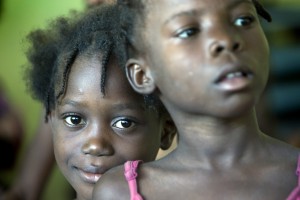We must remain vigilant on issues such as lack of teachers, poor infrastructure and the predominance of the private sector. The United Nations agency is urging the State to establish a regulatory framework for private education, to increase the education budget and to eliminate discrimination and gender violence
Last January 29, the United Nations Committee on the Rights of the Child (CRC) published its conclusions with relation to the revision of the report of the State of Haiti carried out at the beginning of 2016. This revision is focused on the analysis of the situation of the rights of the child and makes recommendations to the State, as “final observations”.
In this case, the Committee acknowledges the adopted measures and the efforts made by the State of Haiti, within the framework of the education policies, but mentions that these are still not enough and expresses deep concern because a “significant number of boys and girls have no access to education.” It also notes with concern that the education infrastructure is inadequate, schools are poorly equipped, particularly in rural and remote areas, there is a lack of qualified teachers and salaries are not regularly paid.
Another issue that CRC points out as a matter of concern is the fact that private schools dominate the education sector, but in most cases they do not have an official mandate or oversight and they impose high costs that worsen structural discrimination existing in access to education, with a special impact on boys and girls living in poverty.
“As education is a fundamental human right, it cannot be a privilege. Everybody must have access to education. It helps us develop as human beings and enables the exercise of the rest of the human rights,” states William Thelusmond, General Coordinator of “Reagrupación por la Educación para Todos y Todas (REPT, by its Spanish acronym), a member coalition of CLADE in Haiti.
State responsibility – The Committee reminds the State about its responsibility to guarantee and regulate education, and urges to improve access to education and to adopt the necessary measures to guarantee the access to education of boys and girls in vulnerable situations. It also recommends an increase in the budget allocated to education, the recovery of the education system infrastructure including the construction of new schools, ensuring properly equipped learning centers as well as training for teachers and timely payment of adequate wages.
Another important recommendation is to establish a regulatory framework and a regular follow-up of private education providers, so as to guarantee the fulfillment of quality standards, accountability and dissuade them from profit-making.
Similarly, recommendations were submitted in relation to ensuring that public-private partnerships do not hinder access to quality education for every child, and to guarantee that private interests do not prevail or impose any kind of commodification of education.
The Committee also raises a concern regarding discrimination and gender violence in the education field. In this sense, it reveals that there are still disparities in access to education among boys and girls, particularly between rural and urban areas, and pregnant teenagers, young mothers and victims of rape, are frequently forced to abandon school.
The Committee on the Rights of the Child (CRC) is formed by 18 independent and international experts who oversee the compliance of the Convention of the Right of the Child, ratified until now by 196 states.
